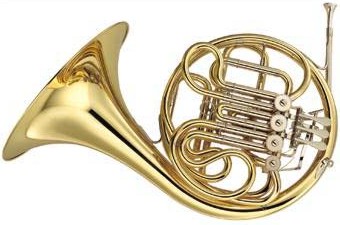Very good point mate. However, I'd have to argue that the guitar player who only knows "crazy solos", and violinists, etc, are the sort of person I'm talking about, who haven't the drive nor the patience to *master* an instrument. And to me, those sorts of people are a step below those who call themselves "multi-instrumentalists". If you're a master of an instrument, you understand the difference between playing lead and rhythm, when to play out and to hold back, etc.Klepa said:I don't know if I'm allowed to speak to you, without being spoken to, but here I go anyway. While I guess you could be correct, and you might have a point, I personally will always respect a person who has studied more than one instrument. Such as yourself, I guess.iDayman said:Oh and being a multi-instrumentalist is just an excuse for people without the drive, commitment, and passion to become truly good at one instrument. I play several instruments besides viola at a high level, but dont consider myself a multi-instrumentalist.
Guitarists constantly fall into the trap of not understanding a single thing about anything else than playing crazy solos, and I'd assume that in classical circles, the same is true for, for example, violinists. Picking up a rhythm instrument would greatly remedy this. I also think that a person who strives to understand music in it's entirety, possesses a lot more wisdom, than a person who only wants to play the fastest solo possible.
My point is, mastering an instrument is a very complex and difficult process. It can take a lifetime to truly master an instrument, and even then, most people we consider "masters" will argue that they will never truly be finished learning. I believe it takes so much more to do that, then to dabble in several different instruments rather than attaining true mastery of one.
For instance, would you consider a doctor or surgeon or scientist at the peak of his/her selected profession, be it neuro-surgeon, rocket scientist, quantum mechanic, or what have you, to be more accomplished and successful, then for instance a general practitioner, or a high-school science teacher? Of course you would. The latter require you to study a variety of different schools within one profession, but no one would ever consider them to be more difficult than the former. Being that intensely specialized in a field requires far, far more work and focus.
That being said, I still have much respect for multi-instrumentalists, it shows clearly that someone is a enthusiast in the field of music, which of course is a great thing, but I'll always think more highly of the professionals. Considering oneself a multi-instrumentalist is a clear sign that you treat music as a hobby, however, many people who don't consider themselves a multi-instrumentalist also play other instruments, and well, just the same as the before mentioned doctors, etc. that will also have a high degree of education in other fields.
I also recognize that there are occasionally multi-instrumentalists who master several instruments (Mozart, as an example.) they are a very rare exception, in addition to the much more common mastery of similar instruments, such as violin/viola or tenor/clarinet.
Hope I dont sound like an elitist at all, I just don't like the extreme deference that non musicians give self proclaimed multi-instrumentalists, just because they don't understand what that really entails.



